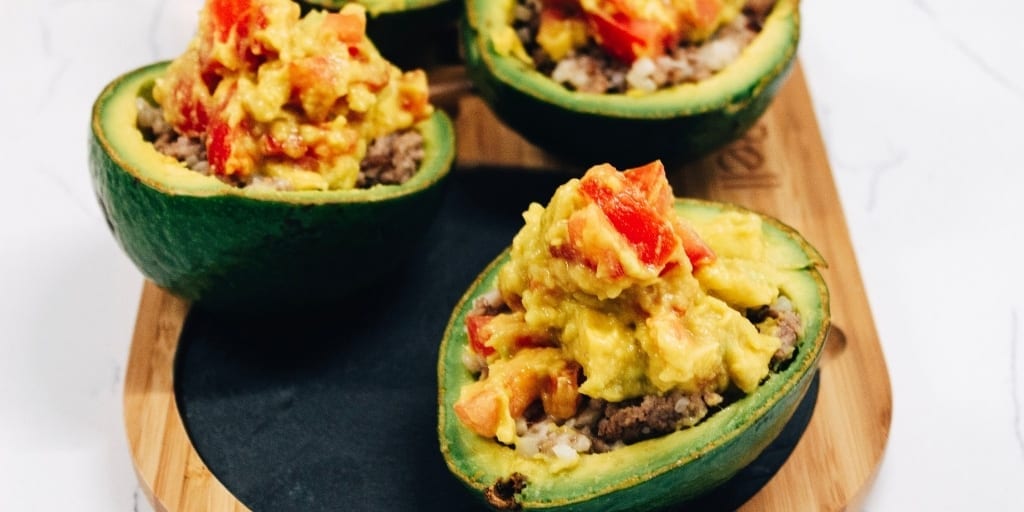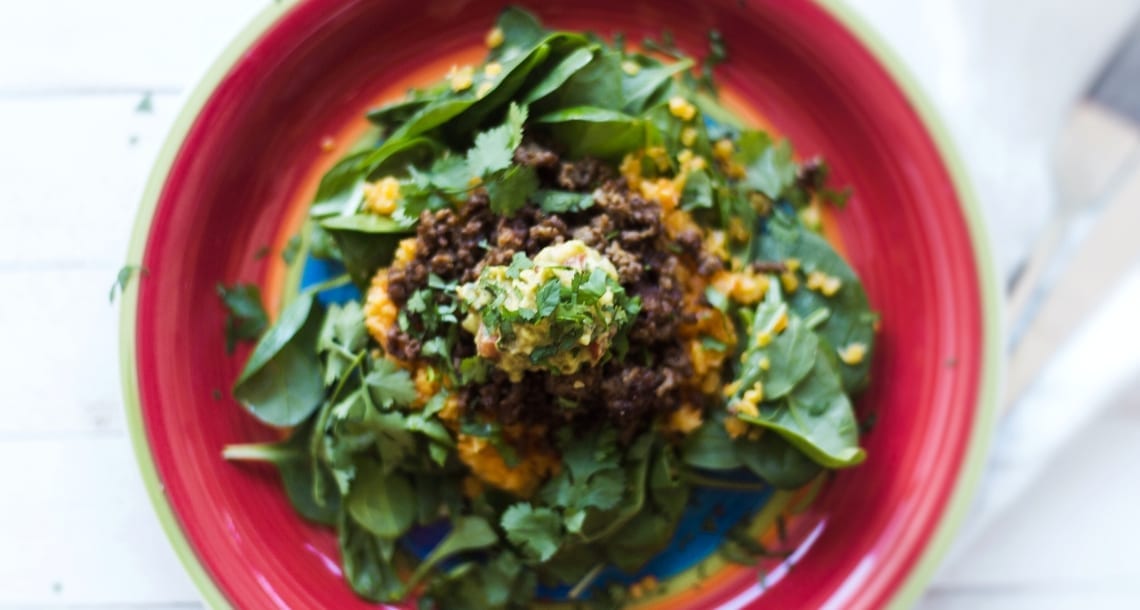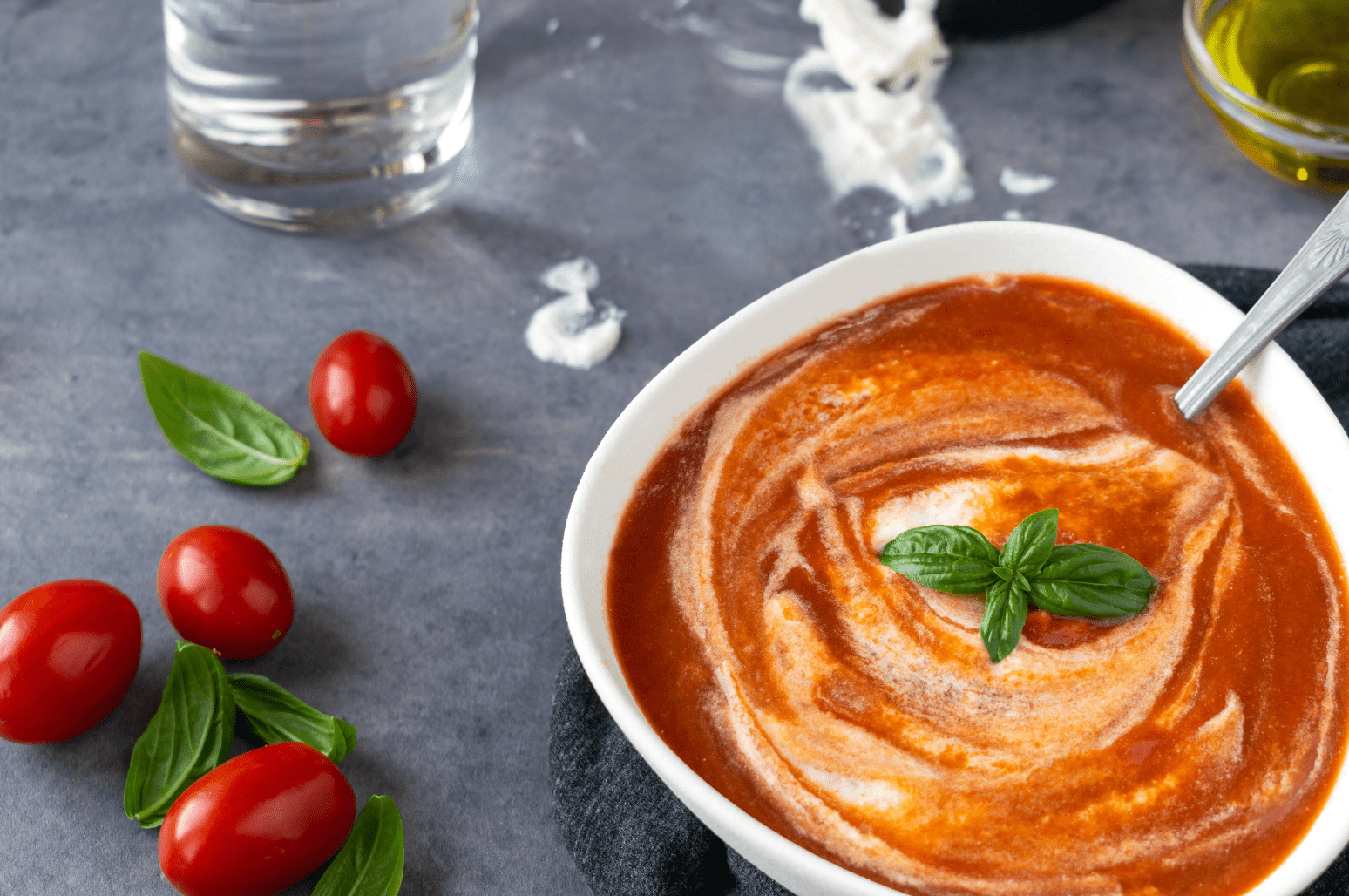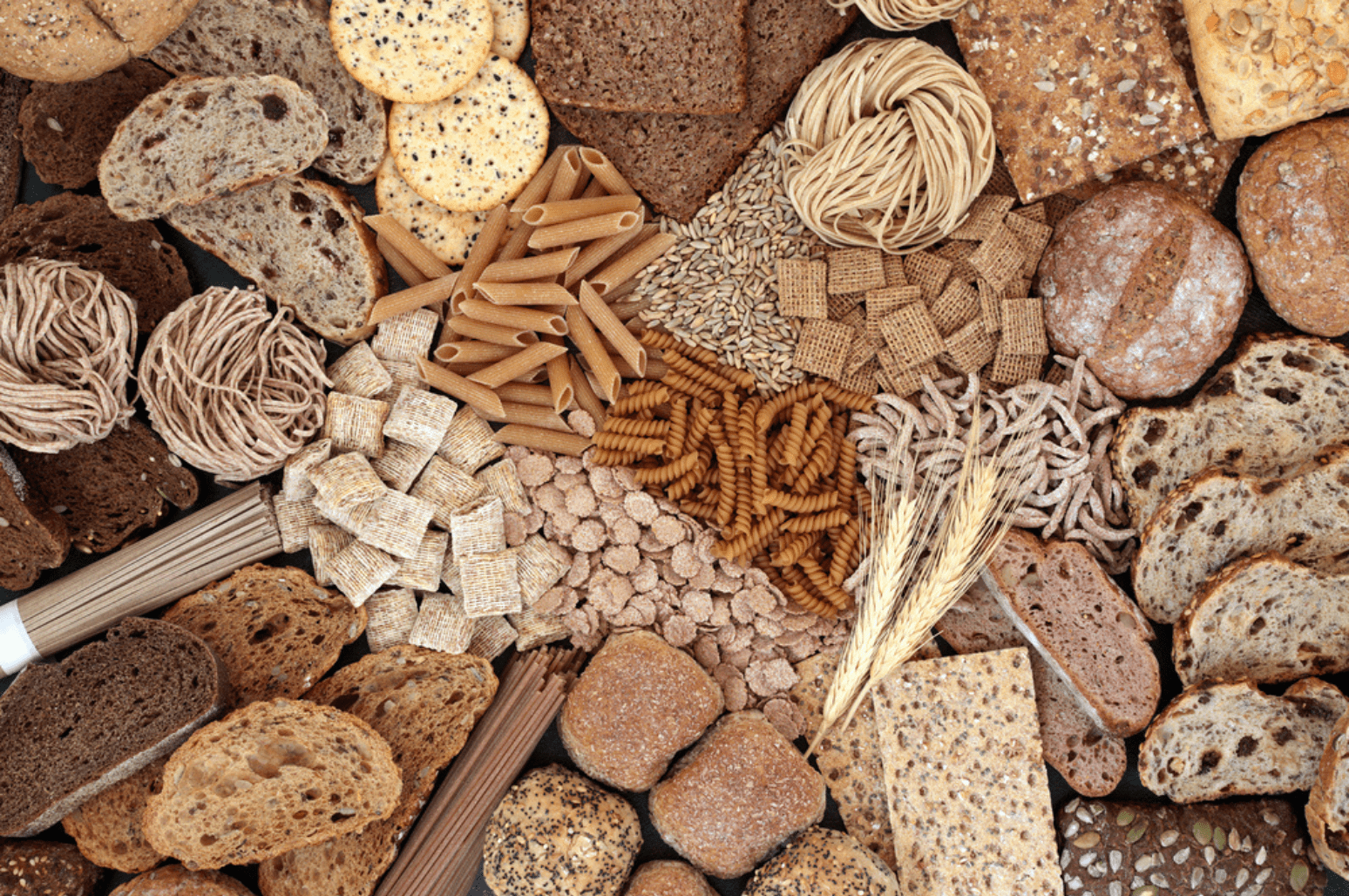
Avocados are a staple of the ketogenic diet. They are high in fat and low in carbs, but what are the other health benefits of avocado? Let’s dive into some delicious avocado recipes and all of the benefits from incorporating them into your diet!
Guacamole makes many mouths water. Is it garnished with a hint of tomato and cilantro? What about a dash of Celtic sea salt and lime and some cayenne pepper to give it a kick? How do you like your guacamole? Avocados don’t just make guacamole, they can make chocolate mousse, a creamy smoothie, a salad topper, and so much more. It’s hard to go wrong with avocados on keto! Try avocados in and on these delicious keto recipes:
Avocados are a perfect high-fat food for many dietary plans from paleo to vegetarian and keto. Avocados are actually a fruit even though they’re often referred to and used as a vegetable. The avocado fruit comes from the avocado tree called the Persea Americana [1].
The avocado comes in a variety of shapes and colors, including round or pear-shaped and green or black. You eat the yellow or green flesh inside the fruit but discard the large seed and skin.
Top Tips!
- Avocados can take some time to ripen. An avocado should feel slightly soft when it’s ripe and ready to eat. Soon after fleshing it, the nutrients in avocado can go brown and oxidize; adding lemon juice slows down this process.
- You could also buy avocados when they’re fresh and they feel firm and harder to the touch. Store them in the fridge and take them out about one or two days before you’re ready to eat. Feel the softness to check when they’re perfectly ripe and ready!
What are the Health Benefits of Avocado?
Avocados offer myriad health benefits.
1) Low-Carb and High-Fat
Avocados provide a unique, rich flavor and they’re low in carbs compared to many fruits, with a 100-gram serving containing around 8.5 grams of carbs and nearly 7 grams of fiber, leaving a net carb total of around 1.5 grams [2].

2) Plenty of Nutrients!
Avocados give you fiber and an array of other important nutrients, such as folate, vitamin C, potassium, and vitamin K. An avocado contains more potassium than a banana, which helps support healthy blood pressure levels. High blood pressure increases your risk for heart attack, strokes, and kidney failure. Most people don’t get enough potassium in their diet [3] [4] [5].
3) Supports Cardiovascular Health!
Simply put, studies show avocados are good for your heart and can improve cholesterol. Avocados are loaded with heart-healthy fats like monounsaturated fatty acids. Around 77% of the calories in an avocado are from fat, making it one of the fattiest plant foods. One of the main types of fat in avocado is the monounsaturated fatty acid called oleic acid, which has been shown to reduce inflammation and positively affect genes linked to cancer [6] [7] [8] [9] [10] [11].
4) The Power of Antioxidants!
Avocados increase antioxidant absorption from other foods and they’re high in antioxidants, including the carotenoids zeaxanthin and lutein. These carotenoids are important for eye health and can reduce the risk of eye conditions like macular degeneration and cataracts [12] [13] [14].
5) Arthritis Symptom-Relief
Reduction in inflammation is one of the biggest health benefits of avocado. Studies show avocado extract can reduce the symptoms of osteoarthritis. More research is needed, but the high-fat content, antioxidants, and nutrients present in avocado could help lower inflammation often involved with different types of arthritis [15].
Do You Get All Of The Amazing Health Benefits of Avocado in Your Diet?
Share your favorite recipes and top tips for incorporating avocados into your keto diet!
References
Dreher, M. L., & Davenport, A. J. (2013). Hass avocado composition and potential health effects.Critical Reviews in Food Science and Nutrition, 53(7), 738-750.
U.S. Department of Agriculture.Avocado, Raw.
Hoy, K., & Goldman, J. D. (2013). Potassium intake of the U.S. population: What we eat in America, NHANES 2009-2010. Nutrition,
Self Nutrition Data. Bananas, Raw.
Aburto, N. J., Hanson, S., Gutierrez, H., Hooper, L., Elliott, P., Cappucio, F. P. (2013). Effect of increased potassium intake on cardiovascular risk factors and disease: Systematic review and meta-analyses.British Medical Journal, 3(346),
Dreher, M. L., & Davenport, A. J. (2013). Hass avocado composition and potential health effects.Critical Reviews in Food Science and Nutrition, 53(7), 738-750.
Basu, A., Devaraj, S., & Jialal, I. (2006). Dietary factors that promote or retard inflammation.Arteriosclerosis, Thrombosis, and Vascular Biology, 26(5), 995-1001.
Yoneyama, S., Miura, K., Sasaki, S., Yoshita, K., Morikawa, Y., Ishizaki, M., Kido, T., Naruse, Y., & Nakagawa, H. (2007). Dietary intake of fatty acids and serum C-reactive protein in Japanese. Journal of Epidemiology, 17(3), 86-92.
Menendez, J. A., & Lupu, R. (2006). Mediterranean dietary traditions for the molecular treatment of human cancer: Anti-oncogenic actions of the main olive oil’s monounsaturated fatty acid oleic acid. Current Pharmaceutical Biotechnology,
Alvizouri-Munoz, M., Carranza-Madrigal, J., Herrera-Abarca, J. E., Chavez-Carbajal, F., & Amezcua-Gastelum, J. L. (1992). Effects of avocado as a source of monounsaturated fatty acids on plasma lipid levels.
Khachik, F., Bernstein, P. S., & Garland, D. L. (1997). Identification of lutein and zeaxanthin oxidation products in human and monkey retinas. Investigative ophthalmology & Visual Science, 38(9), 1802-1811.
Delcourt, C., Carriere, I., Delage, M., Barberger-Gateau, P., Schalch, W., & POLA Study Group. (2006). Plasma lutein and zeaxanthin and other carotenoids as modifiable risk factors for age-related maculopathy and cataract: the POLA study.Investigative Opthalmology & Visual Science, 47(6), 2329-2335.
Gale, C. R., Hall, N. F., Phillips, D. I. W., & Martyn, C. N. (2003). Lutein and zeaxanthin status and risk of age-related macular degeneration. Investigative Ophthalmology & Visual Science, 44(6), 2461-2465.
DiNubile, N. A. (2010). A potential role for avocado-and soybean-based nutritional supplements in the management of osteoarthritis: A review.The Physician and Sports Medicine, 38(2), 71-81.
Blotman, F., Maheu, E., Wulwik, A., Caspard, H., & A. Lopez. (1997). Efficacy and safety of avocado/soybean unsaponifiables in the treatment of symptomatic osteoarthritis of the knee and hip.A prospective, multicenter, three-month, randomized, double-blind, placebo-controlled trial.Revue Du Rhumatisme, 64(12), 825-834.














